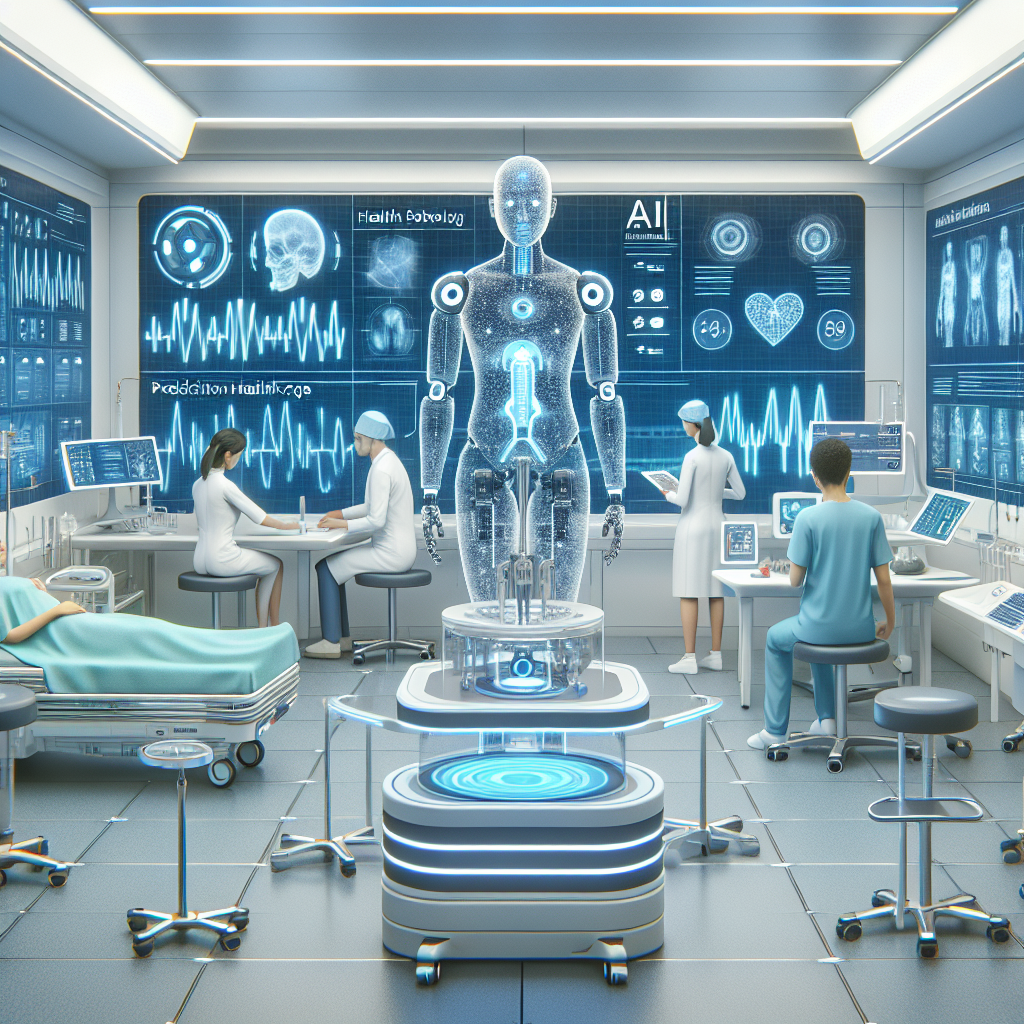Introduction to AI in Predictive Healthcare
The integration of artificial intelligence (AI) into the healthcare sector is rapidly transforming the way medical professionals approach diagnostics and treatment. Predictive healthcare, which leverages data analysis and machine learning algorithms, allows for better forecasting of patient outcomes, ultimately leading to improved care and efficiency.
The Role of AI in Predictive Healthcare
AI plays a crucial role in predictive healthcare through various applications, including:
- Data Analysis: AI can analyze vast amounts of patient data from electronic health records, wearables, and other sources to identify patterns and predict potential health issues.
- Risk Assessment: Machine learning models can assess the risk of diseases, enabling healthcare professionals to implement preventive measures before conditions escalate.
- Personalized Treatment Plans: By predicting how patients might respond to certain treatments, AI enables the creation of tailored treatment plans that enhance the efficacy of interventions.
Enhancing Diagnostics
AI technologies are significantly improving diagnostic accuracy. Tools powered by AI can recognize symptoms and suggest diagnoses more quickly than traditional methods. For instance, AI algorithms are being used in radiology to analyze images and detect anomalies, assisting radiologists in making more accurate decisions.
Improving Patient Outcomes
AI’s predictive capabilities lead to better outcomes by enabling healthcare providers to:
- Proactively manage chronic diseases through continuous monitoring and timely interventions.
- Reduce hospital readmissions by predicting which patients are at higher risk.
- Optimize operational efficiency by predicting patient influx and resource allocation.
Case Studies and Success Stories
Numerous healthcare organizations have successfully implemented AI in their predictive efforts:
- Improved Diabetes Management: AI systems analyze patient data to predict the likelihood of diabetes complications, prompting timely interventions.
- Heart Disease Prediction: AI algorithms have been used to assess cardiovascular risks by detecting early warning signs in patient data.
Future Prospects of AI in Predictive Healthcare
The future of predictive healthcare powered by AI is promising. As technology advances and more data becomes available, the precision and reliability of AI predictions are expected to improve. This will lead to:
- Greater integration of AI in clinical workflows.
- Enhanced collaboration between AI systems and healthcare professionals.
- Continued innovation in treatment strategies and preventive care.
Conclusion
AI in predictive healthcare is not just a trend; it represents the future of medicine. By harnessing the power of data and machine learning, healthcare providers can enhance diagnostic capabilities, personalize treatment plans, and ultimately improve patient outcomes. As this technology continues to develop, it is crucial for the healthcare industry to embrace AI innovations to stay at the forefront of effective patient care.

